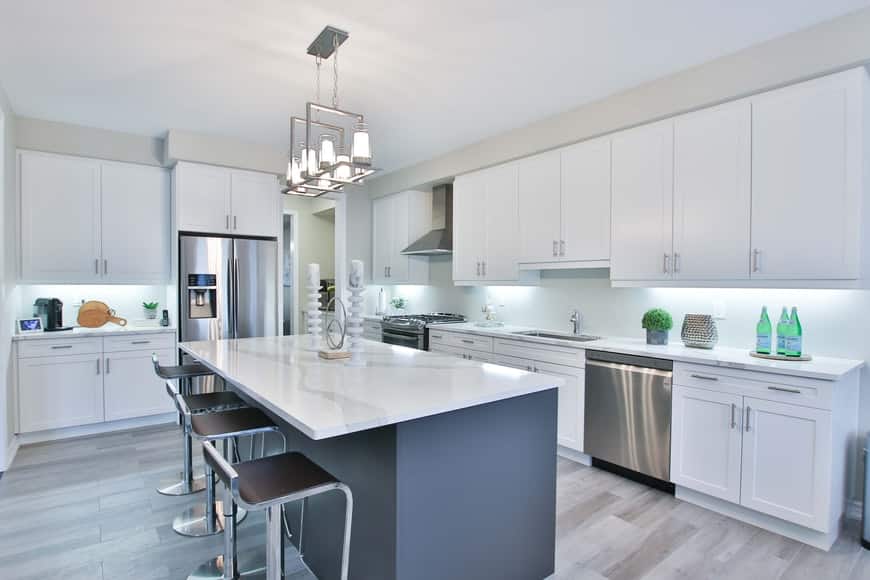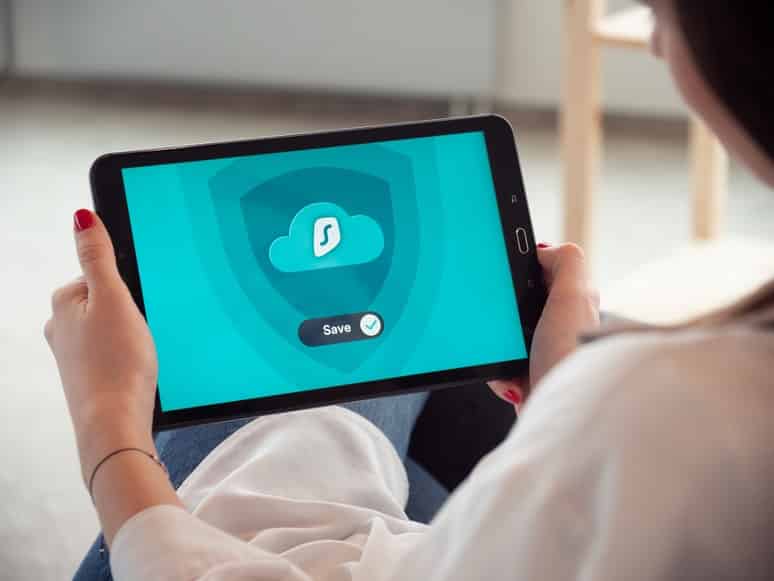Ever since we saw smart homes on the silver screen and television media, the idea of owning a smart home has tickled the curiosity of society at large. After all, who wouldn’t want a talking fridge, robot maid, and home A.I.? However, these futuristic homes are no longer just the stuff of science fiction flicks, thanks to advancements in technology. One hundred seventy-five million smart homes now exist globally, with Statista estimating there would be sixty-three million connected homes in the United States alone by 2022. Given the multitude of benefits smart homes provide, especially when it comes to the health and safety of our families, this trend won’t be slowing down any time soon.
With so many options and features to choose from, it can be challenging to pick which of these high-tech home improvements you’d like to install in your dream smart home. Rather than get swept up by the high-tech hype, choosing features that get you every bang for your buck is essential. The payoff is worth it, especially when you can monitor and control your electricity usage, lock your doors remotely, and have more command of your home than you have ever been before. Explore the vast array of smart home technology trends below.

Why Own a Smart Home?
Over the years, scientists and inventors have continuously developed creative and innovative ideas to improve technology. As technology improves, smart home technology will become more accessible, convenient, and integrated, allowing you to take complete control of your homes with just a few clicks from your device. Read more on why a smart home may be ideal for you.
Home Integration
The smart home industry is no longer a niche market. Home-buyers have steadily increased their standards regarding technological features they’re looking for while shopping for their dream home. For some people, total home integration is their go-to choice. Combining the same products and services from known providers can make intelligent homes more accessible even for the least tech-savvy of individuals.
Full home integration also allows these pieces of technology to communicate with one another, saving you valuable time and effort. For example, you no longer need to worry about forgetting to turn off the lights when you leave a room. Smart light switches can detect human presence in a room and subsequently shut off the lights if there aren’t any people around.
Total home integration for smart homes isn’t just for home-buyers. Landlords and people planning to buy a second home for short-term rentals can also benefit from integrated homes. A fully integrated property will stand out among other rentals, and renters are willing to pay more for these features.
Artificial Intelligence for Intelligent Living
Ever wanted to feel like Tony Stark and have your own Jarvis or Friday”? Having an A.I. virtual assistant allows you to do just that. With a simple voice command, you can conveniently set timers or turn off lights. The functionality of A.I. s doesn’t stop there as new advancements have enabled A.I. integration to other parts of your home.
Nowadays, some ovens allow you to manipulate your settings with your voice. Some mirrors host workout videos and critique your form, and there are even fridges that automatically track contents and write a grocery shopping list for you.

Smart Homes are Healthier Homes
The Covid-19 pandemic completely transformed the way we think about our family’s health and well-being. Since we spend a lot of our time in our homes, it goes to say that we want to make sure that our homes are safe. Home automation companies have also stepped up, offering new technologies designed to minimize the threat of the virus from your homes. Automated vacuums like Roombas clean your floors on a regular schedule. However, new technology like contactless appliances is being developed targeted towards health-conscious homeowners.
Home Office Automation is the New Work Trend
The pandemic has also significantly impacted the way we work. Nowadays, working remotely from home has become the norm. Consequently, the demand for home office spaces has skyrocketed. Smart homes with built-in features like noise-canceling walls and windows as well as air filtration systems are likely to see a surge in popularity. These areas can also serve other functions, such as a remote classroom and study for students of all ages taking virtual classes.
Smart Homes Offer High-tech Security
As one would expect, smart homes aren’t cheap. And with all the fancy tech installed in your house comes the increased risk of break-ins and burglaries. To counter this threat, it is also necessary to invest in a home security system.
Modern home protection systems usually include security cameras, motion detectors, video doorbells, and alarms that automatically call the authorities when triggered. With all these safety systems in place, you can rest assured that your home is prepared and protected from home invaders.
Resurrect Dead Zones with Smart Homes
The infamous dead zones are parts of your house that receive poor connectivity from your internet connection. However, these dead zones are brought back to life through mesh WiFi.
Mesh WiFi technology that promises you’ll never experience dead zones in your home again. It consists of the main router that connects to a series of satellite modules and nodes all over your house. This network creates a blanket effect that ensures you get a signal no matter where you are in your home.

Smart Homes Offer Total Customization
Despite the numerous choices in the market, people often worry about the compatibility of smart home devices. Primarily compatibility becomes a concern when the same providers don’t manufacture products you’re interested in. Purchasing smart home devices from the same maker may limit the features you prefer to install in your smart home. However, most smart home devices are designed to be cross-compatible with other devices. This compatibility means you don’t have to worry if two devices do not share the same manufacturer. Overall smart homes allow people to customize their homes the way they want.
